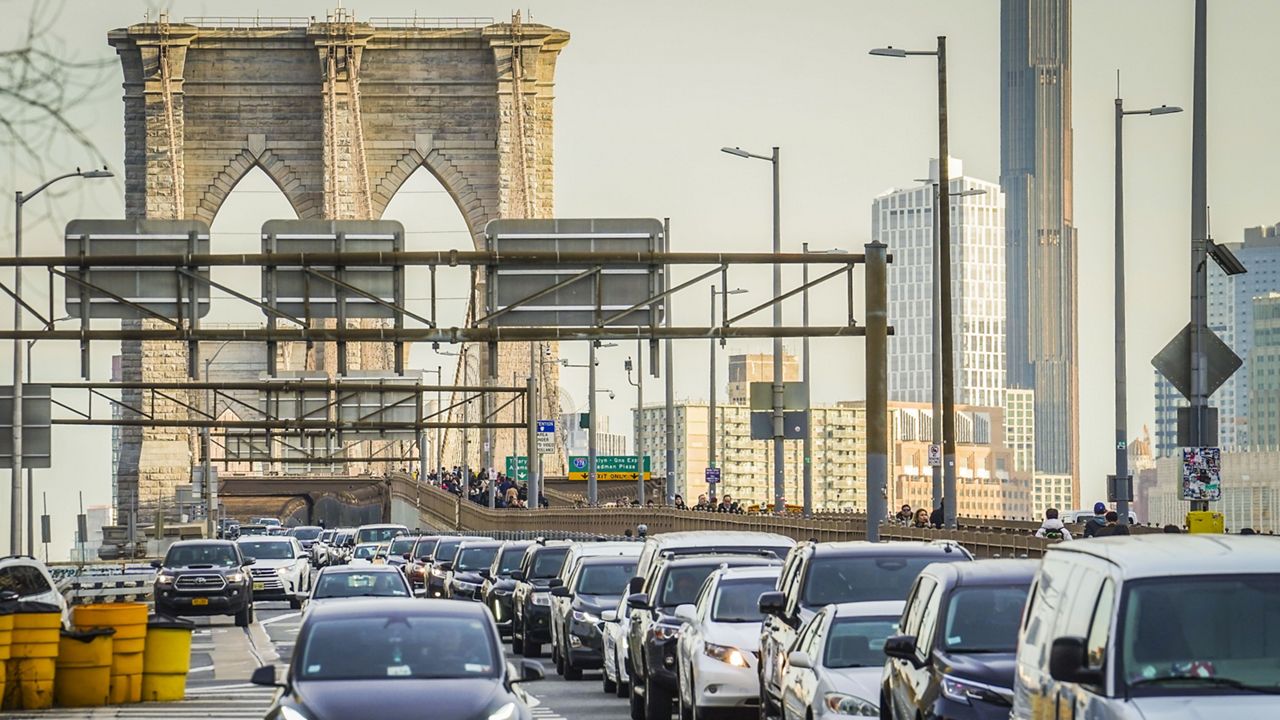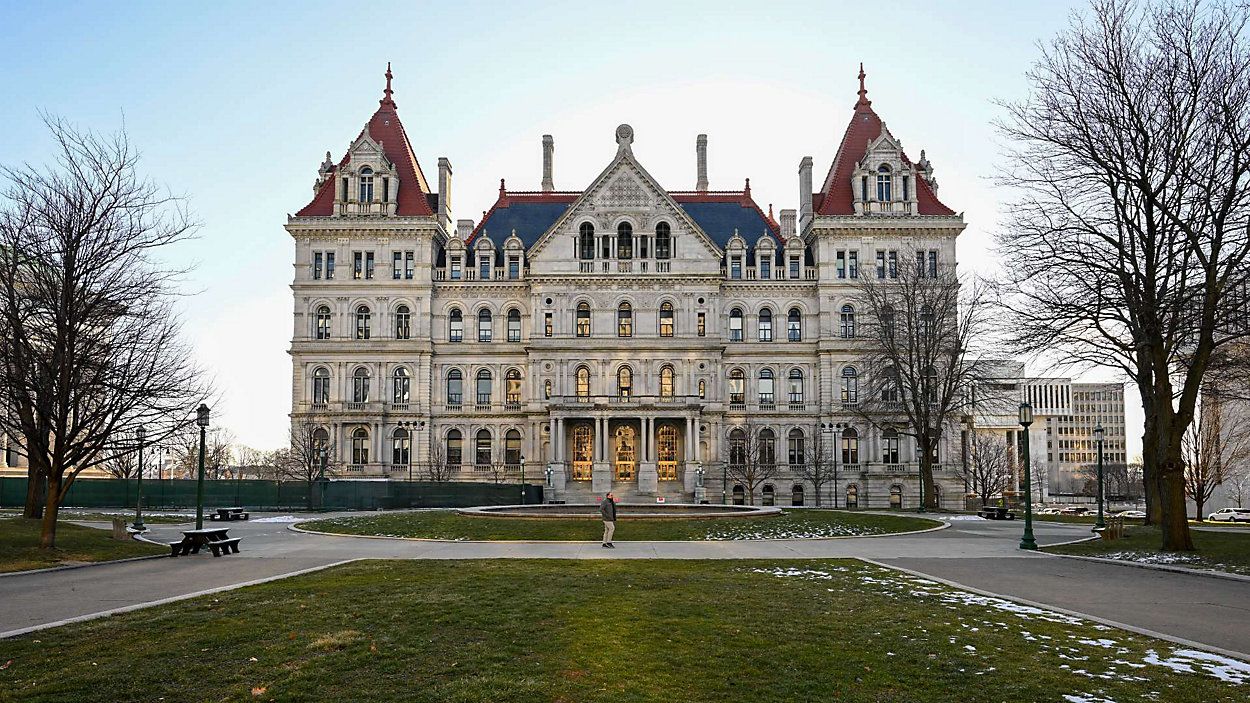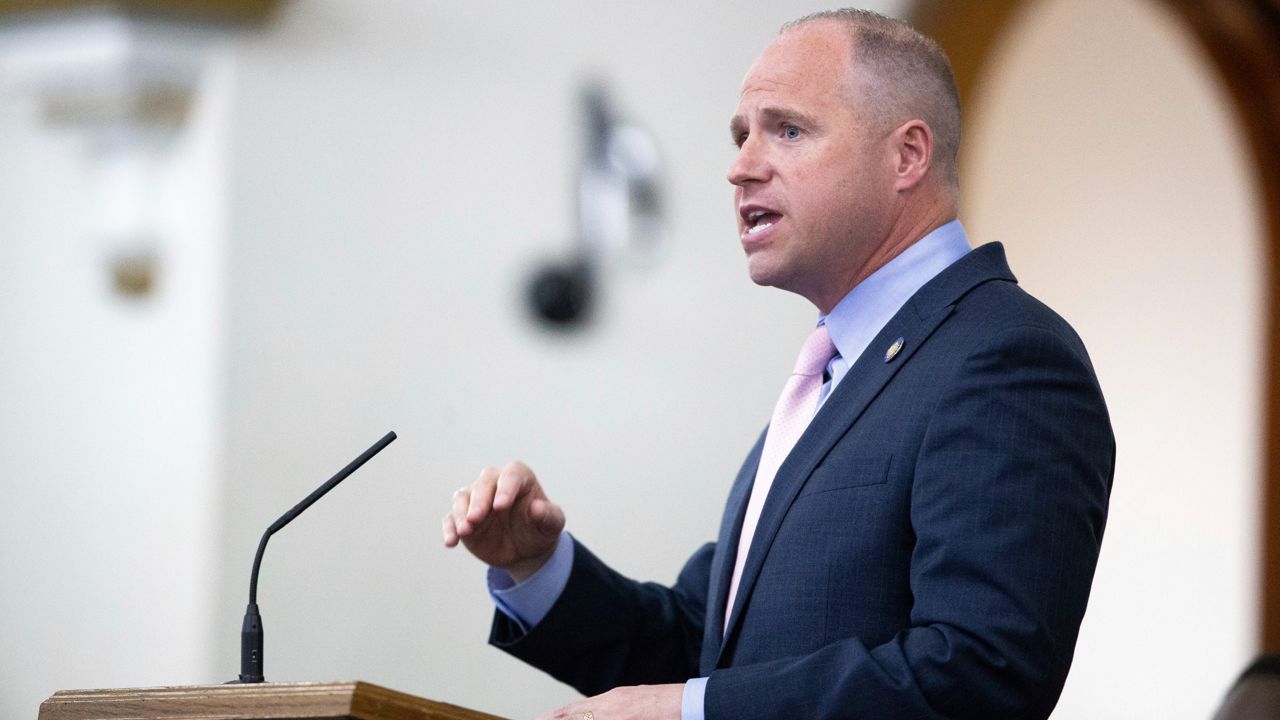Lawmakers are taking the time while out of session to improve the Fashion Act after it didn't advance out of committee this session.
The first legislation of its kind, the Fashion Sustainability and Social Accountability Act would require global clothing and footwear companies to amend their practices to reduce their impacts on climate change.
The fashion industry is responsible for up to 8% of the world's greenhouse gases, and is one of the greatest contributors to child and slave labor.
Fashion companies and retail sellers that do business in New York and exceed $100 million in revenue would be required to publish their negative environmental and social impacts, including greenhouse gas emissions, water and chemical management, labor conditions for workers, their recycling habits and others.
"Even though it's just a New York bill, it would have a global impact because for all of those companies, their suppliers, really, are all over the world," said Assembly sponsor Anna Kelles, a Democrat from Ithaca.
The requirements would apply to any company that makes significant sales in New York — one of the fashion capitals of the world — regardless of where the company is headquartered.
Companies would be mandated to map and publish at least 50% of their supply chain, and would have to set individual targets each year to reduce their risk of negative impacts to the environment and human rights violations.
Kelles says the legislation setting benchmarks for companies wouldn't go far enough to effect systemic change, and is why the Fashion Act requires companies to self-evaluate their practices and continuously reduce their negative risks in the context of labor rights and sustainability.
"Those reductions need to be sufficient, meaning that they actually have a measurable impact improving labor practices, improving the experience of laborers and significant reductions in greenhouse gases," Kelles said. "This is a combination of benchmarks and human rights due diligence and enforcement."
The Fashion Act is the first legislation of its kind across the globe to propose sustainability requirements on the fashion industry and retail sellers. Lawmakers plan to meet with fashion manufacturers, retailers, labor rights and environmental rights activists and other stakeholders through the end of the year for recommendations about how to strengthen the bill so it passes next session.
The state attorney general's office would fine companies that don't comply up to 2% of their annual state revenues up to $450 million, and publish an annual list of companies in noncompliance.
Money collected from the penalties would be placed in a community benefit fund to be used to offset other environmental or social impacts. Lawmakers are working with stakeholders to define how the fund could be used.
Ken Pokalsky, the vice president of government affairs with the Business Council of New York State, is concerned the bill and others modeled after it will have negative impacts on state businesses.
"You can have ambitious goals, but it has to be done in a workable way," he said Wednesday. "And you have to be giving a New York state business something they can actually have a practical way to achieve without imposing significant penalties on them. That's our real concern."
The bill is written based on labor guidelines issued by the United Nations, Organization for Economic Cooperation and Development and other international organizations.
Companies will have one year to begin the required supply-chain mapping, and a year-and-a-half to start to comply with the environmental and social impact reporting and risk reduction if the bill becomes law.









